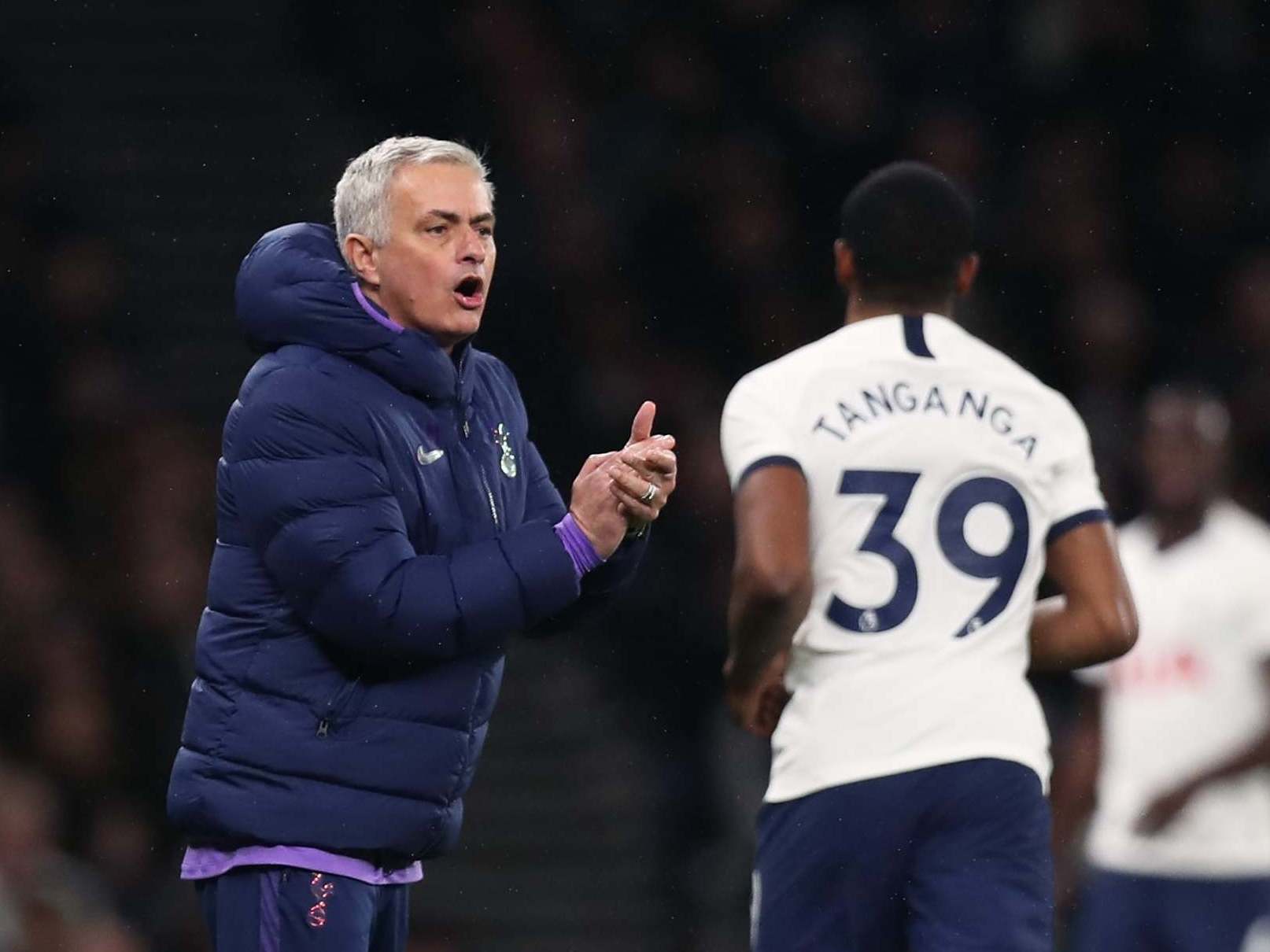Tottenham remain a hot mess under Jose Mourinho but youngsters offer hope for the future
Tottenham’s win over Middlesbrough in the FA Cup last night showed they remain a team with many problems, but at least Mourinho appears more willing to trust in the club’s next generation than Mauricio Pochettino

Tottenham Hotspur’s 2-1 victory over Middlesbrough in the FA Cup may not have been perfect — one only had to watch Davinson Sánchez’s perversely entertaining disasterclass to know that — but it was yet another night on which their youngest players shone.
Such was the suspicion when José Mourinho named Japhet Tanganga in his starting XI to face Liverpool last weekend that many immediately concluded that the 20-year-old was little more than an unsubtle message to Daniel Levy to buy him a new defender: some kind of passive-aggressive email to the boss made flesh. Yet he has now been the club’s best player in successive matches.
If Tanganga was solid on Saturday he was superb in the dark and drizzle on Tuesday night: positionally intelligent, defensively resolute and a surprisingly effective attacking outlet to boot. His two performances have been all the more impressive considering the abject state of the Tottenham defence he has been parachuted into. Against Liverpool, he had to be perpetually aware of Serge Aurier’s breezy strolls forward. Against Middlesbrough, he meanwhile had to compensate for a Sánchez performance so bad it became difficult not to be deafened by an internal rendition of the Yakety Sax every time the ball went anywhere near him.
Such was Tanganga’s influence on the game that no player from either side had more touches of the ball. It is already difficult to envisage how Mourinho can leave him out for the trip to Watford on Saturday, particularly as his inclusion on the right-hand side of an asymmetrical defence presents the similarly impressive 19-year-old Ryan Sessegnon with so many opportunities to break free on the left. Interestingly: neither had much of a look in under Mauricio Pochettino.
Last summer, Pochettino had earmarked Tanganga for a possible breakthrough, playing him in pre-season friendlies against Bayern Munich and Real Madrid and inviting him to train with the first-team. Yet he would play him just once before his dismissal: in September’s dismal Carabao Cup defeat by Colchester. The result seemed to spook Pochettino: with Tanganga, 17-year-old striker Troy Parrott and 19-year-old midfielder Oliver Skipp all withdrawn in the second-half and barely seen under him again.
Tottenham's most talented young players
Show all 11It continued a worrying trend. Initially so willing to trust in youth at both Southampton and Spurs, Pochettino’s increasing reluctance to drop ailing senior players for talented academy products became one of the most significant failures of his time at the club. Under Pochettino, a frustrated Tanganga began stalling on signing a new contract. Danny Rose was preferred to Sessegnon. Highly-rated prospects like Skipp and 22-year-old defenders Juan Foyth and Kyle Walker-Peters were rarely used and yet not loaned out to continue their development. Others, like midfielders Josh Onomah and Marcus Edwards, were sold. Edwards is now playing so well at Vitória de Guimarães that he has even been linked with an unlikely move back to the club.
Pochettino largely escaped criticism for Tottenham’s talent pool running dry because he had started his tenure by helping to bring through the likes of Harry Kane, Dele Alli and Harry Winks. But his stubborn refusal to allow the club’s more talented academy players to leave on loan only stunted their development. And, at the bitter end of his time in north London — when the likes of Rose, Jan Vertonghen and Christian Eriksen were so clearly off the pace — he had no readied young players to turn to. Trusting in youth was no longer an option.
It is here that Mourinho can learn from Pochettino’s mistakes.
When he replaced Pochettino, Mourinho immediately pledged to “play young players and help them evolve”. These are still early days, and Mourinho’s decision not to name Parrott in his matchday squad last night caused some consternation among the club’s more committed fans, but the faith he has shown in both Tanganga and Sessegnon as well as this morning’s acquisition of 21-year-old midfielder Gedson Fernandes at least suggests that he intends to stay true to his word.
Trusting in Tottenham’s young players will please both Levy and the club’s supporters — but it benefits Mourinho, too. One of the oft-repeated criticisms of Mourinho is that he is uninspiring. That he is too pragmatic and reactive. That, in a new age of adventurous ideologies and philosophies, he is stale and old and outmoded. Already, there have been grumbles that it is difficult to discern what his Spurs side are trying to do. But dutifully ushering in a new generation of talent helps to alleviate a lot of those criticisms. It gives supporters a reason to be patient, as well as providing them with something to believe in.
Perhaps this is all too much to hope for. Perhaps the likes of Tanganga, Sessegnon and Fernandes will get a run out in the FA Cup fourth round at Southampton later this month and then spend the remainder of the season watching on impatiently from the substitutes’ bench. But, if Mourinho really is the ruthless careerist that so many have concluded that he is, perhaps he will decide that entrusting in Tottenham’s youth is at this point his best hope for both immediate and sustained success.
Subscribe to Independent Premium to bookmark this article
Want to bookmark your favourite articles and stories to read or reference later? Start your Independent Premium subscription today.

Join our commenting forum
Join thought-provoking conversations, follow other Independent readers and see their replies